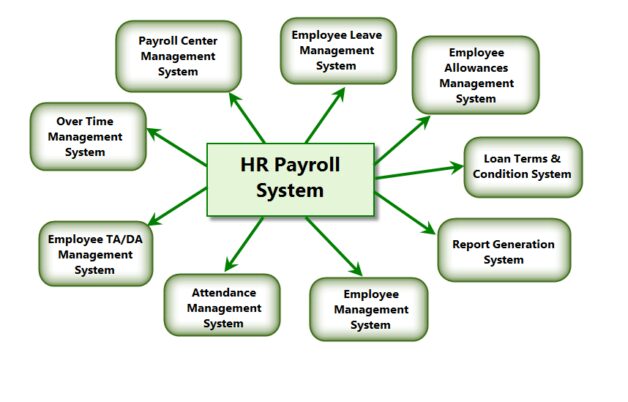
As an entrepreneur, one of your most important responsibilities is managing your company’s payroll. Not only do you need to ensure that your employees are paid on time and correctly, but you also need to make sure that all the necessary taxes are withheld and filed. While payroll may seem like a daunting task, there are some simple tips and tricks you can follow to make things go smoothly. In this blog post, we’ll share some management tips every entrepreneur should know. From setting up a system to tracking payments, these tips will help you stay on top of your company’s finances and keep your employees happy.
The Different Types of Payroll Systems

There are two main types of payroll systems: paper-based and computerized.
– Paper-based payroll involves keeping track of employee hours and pay rates on paper, then calculating the total amount owed to each employee at the end of the pay period. This method is time-consuming and can be prone to error.
– Computerized payroll systems make the process much easier by tracking employee hours electronically and automatically calculating pay. These systems can be integrated with timekeeping software to make tracking employee hours even easier. Many computerized systems also offer features like direct deposit, tax withholding, and vacation/sick leave accrual.
The Benefits of Having a Payroll System
– Perhaps the most obvious benefit is that it can save you a considerable amount of time and effort in managing your employee payroll.
– Another big benefit is that it can help to ensure that your employees are paid correctly and on time. This can help to improve morale and motivation among your team, as well as reducing the risk of errors and disputes.
– A good payroll system can also help you to keep track of employee hours worked, leave taken, and other important information. This can be valuable for both HR and managerial purposes.
The Different Types of Payroll Software

There are a few different types of software available on the market. Here is a brief overview of each type:
- Online payroll software. This is a cloud-based solution that allows businesses to manage their payroll online. This type of software is often used by small businesses, as it is typically more affordable and easier to use than other types of software.
- Desktop payroll software. This software is installed locally on a computer, and can be used by businesses of all sizes. This type of software typically offers more features and functionality than online solutions, but can be more expensive and difficult to use.
- Enterprise payroll software. This software is designed for large businesses with complex payroll needs. This type of software offers the most features and functionality, but can be very expensive and difficult to use.
How to Choose the Right Payroll Software for Your Business?
As a business owner, you have a lot on your plate. From managing day-to-day operations to keeping up with the ever-changing landscape of payroll planning and taxes, it can be difficult to know where to start—or what software is right for your business.
While there are many different software options on the market, they’re not all created equal. And with so many factors to consider—from features and pricing to integrations and support—choosing the right one for your business can be daunting.
To help you make the best decision for your company, we’ve put together a list of things to keep in mind when choosing payroll software.
- Consider your business needs. The first step in choosing the right software is to assess your business needs. What features are you looking for? How many employees do you have? Do you need time tracking or onboarding capabilities? Answering these questions will help you narrow down your search and find a solution that’s tailored to your specific needs.
- Compare features and pricing. Once you know what features you need, it’s time to compare them side-by-side. Make a list of must-have features and compare prices across different providers. Don’t forget to look at things like integrations, customer support, and ease of use when making your decision—you want a solution that’s not only affordable but also easy to use and set up.
- Consider your industry. Your industry can also have an impact on your decision. For example, if you’re in the healthcare industry, you’ll need to make sure your payroll software is compliant with HIPAA regulations. If you’re in the retail industry, you may need a solution that can integrate with point-of-sale systems. Keep your industry requirements in mind when comparing different solutions.
- Read reviews. Once you’ve narrowed down your options, it’s time to do some research. Read online reviews from other business owners and compare their experiences with different providers. This can be a great way to get an unbiased look at what it’s like to use different software solutions.
- Get a free trial. Most providers offer free trials, so take advantage of them! This is a great way to test out a solution and see if it’s a good fit for your business before committing to a purchase.
- Ask for recommendations. Finally, don’t forget to ask for recommendations from other business owners or your accountant or bookkeeper. They likely have experience with different payroll software solutions and can give you insights into which ones are best for your specific needs.
Tips for Implementing a Payroll System in Your Business

Here are a few tips:
- Know your state’s laws. Every state has different laws regarding payroll, so it’s important that you familiarize yourself with the laws in your state before you get started. This will help you avoid any penalties or fines down the road.
- Choose the right software. There are a lot of different programs out there, so it’s important that you choose one that’s right for your business. Make sure to do your research and compare features before making a decision.
- Set up direct deposit. Direct deposit is a convenient way for employees to get their paychecks, and it can also help you save time and money on processing paychecks manually.
- Keep accurate records. Accurate record-keeping is essential for any business, but it’s especially important when it comes to payroll. Make sure to keep track of hours worked, vacation days taken, etc., so that you can properly calculate paychecks each week or month.
- Communicate with your employees. It can be confusing, so it’s important that you communicate with your employees about how it works and what they can expect from their paychecks. This will help avoid any misunderstandings or frustration down the road.
